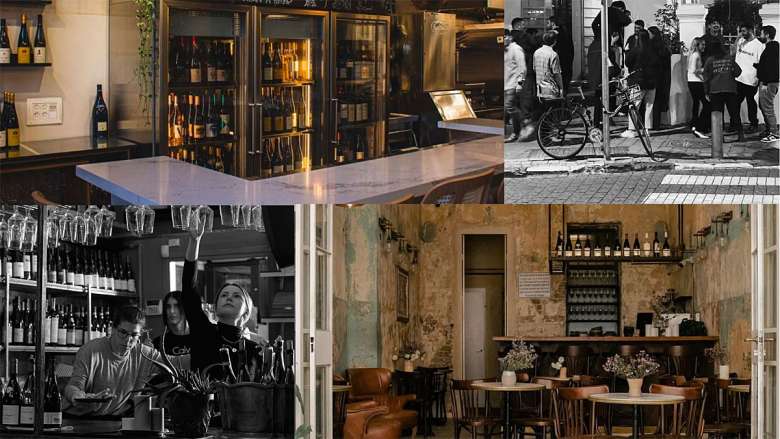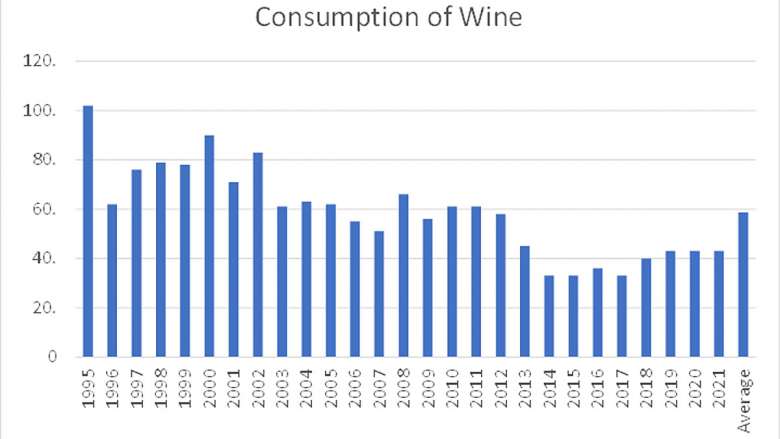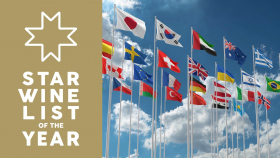Adar Bershadsky on the new wave of wine bars in Israel

Despite ongoing instability, Tel Aviv has emerged as one of the world's most vibrant and dynamic cities. Its motto, “A city without stopping,” rings true, as one can find a coffee, dinner, drink, or even breakfast any time of day or night. The abundance of new wine bars in Tel Aviv is a testament to the city's vibe, writes our Israel ambassador Omer Dayan who caught up with R2M Wine Director Adar Bershadsky.
Historically, wine consumption in Israel has been low, averaging just below 6.5 litres per capita annually. Part of this consumption includes sacramental wine rather than wine for leisure. In comparison, France, Italy, and Spain consume around 38 litres per capita annually.
However, something has shifted in Israeli drinking habits. To explore this further, I had a chat with Adar Bershadsky, the wine director of the R2M hospitality group, responsible for supervising wine lists in restaurants, bars, delis, cafes, and online stores.
The restaurant renaissance in Israel began in the mid-90s. Before that, most restaurants served home-cooked meals and kebabs. By the early 2000s, chefs had completed internships overseas, the variety of imported wines grew, and the economy improved.

Adar, when did you notice the shift in consumption patterns?
“Well, in recent years, the number of wine bars in Israel has exploded, with two main types: those driven by passion and those seeking to capitalise on wine’s popularity. Furthermore, flight prices dropped, enabling Israelis to explore wine bars and wine tourism, experiencing the casualness and affordability of Europe. Israelis liked the less committed evenings out and spontaneous plans, instead of more formal restaurants."
And then COVID happened…
“Yes, then Covid outbreaks. But a lot had changed. The number of wine importers and local wineries skyrocketed. Hundreds of WSET (Wine & Spirit Education Trust, Editor's note) graduates joined the industry, marking a golden age for wine. But as fate would have it, the pandemic hit, leading to restaurant and bar closures and importers scrambling to find a new market for their stock.”
“Suddenly, wines previously available only to the hospitality industry became accessible to the public at a lower price point. Wine lovers tried more and more wines, with some even ordering wine every week.”

Is there any turning point that you can identify?
“Yes, a new format was introduced to Israel: Wine stores began to serve as hybrid wine bars, taking advantage of a regulation that permitted drinking on the curbside. This sparked a deeper appreciation for wine. And the more you try, the more you want it. Consumers realised that wine’s taste and flavour could not be easily defined. They may not have the same Pinot Grigio twice, creating a thirst in the community.”
Adar Bershadsky says that this phenomenon led to the emergence of professional wine bars that catered to customers seeking fine service and attention to detail.
“However, those wine bars that joined the trend without a professional mentor may struggle to survive, as customers seek uniqueness in the long run,” he adds.
As the consumption grows, I believe that first competition between importers will grow, leading to a general price drop.
And what about the future?
“I believe that the future of professional wine bars in Israel appears promising, but only for those prioritising quality and attention to detail. More and more markets are interested in entering the Israeli market, and although we are a small market, we attract attention.”
What will be the next turning point?
“As the consumption grows, I believe that, first, competition between importers will grow, leading to a general price drop. Secondly, Israel will get better allocations from high-end fine wines, leading to better deals for the importers and, hopefully, the end consumer. And as long Israel makes more connections to the global world of wine, through rumours that Michelin might publish a guide to Israel or a presence on Star Wine List, for example, it will increase demand to a new level."
At this point, Bershadsky had to move on with his busy schedule. For myself, I left our conversation with a fresh perspective on Tel Aviv and Israel. This also made me wonder when this wine trend would spread to other major cities like Jerusalem, Haifa and Be'er Sheva.
Check out the latest update on Tel Aviv by clicking on the link below.
Do like the Pros - search 2500+ wine lists












